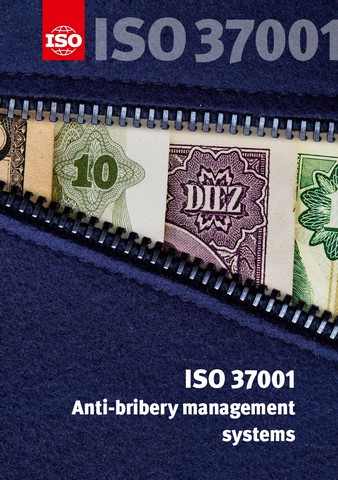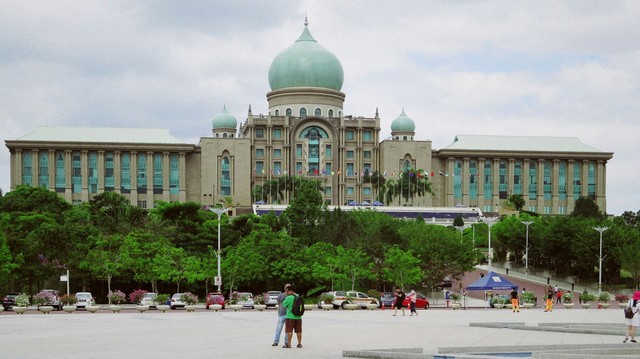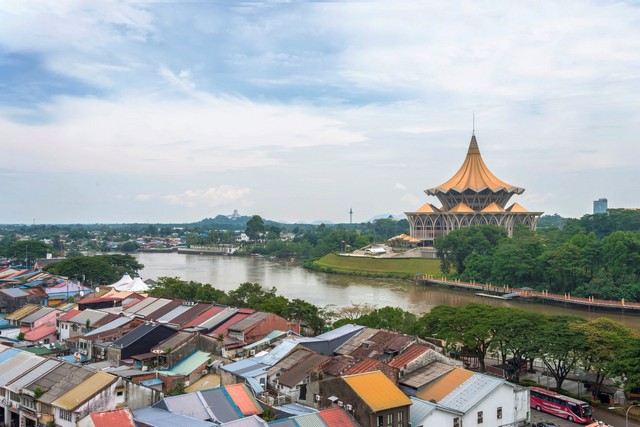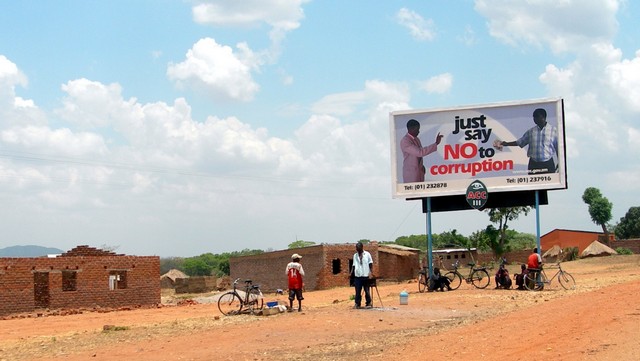ISO 37001 is a global standard for organisations to establish, carry out, maintain and enhance their anti-bribery management systems.
An anti-bribery management system – according to the International Organisation for Standardisation (ISO) which published the standard in 2016 – is meant “to instil an anti-bribery culture within an organisation and implement appropriate controls, which will in turn increase the chance of detecting bribery and reduce its incidence in the first place.”
Whether implemented independently or within the overall management system, ISO 37001 can be applicable to organisations from the public, private and not-for-profit sectors in need of guidelines for measures and controls that ensure anti-bribery compliance internally and externally through third parties.

Malaysia adopted the standard as MS ISO 37001: 2016 Anti-Bribery Management System (ABMS) in 2016, and certified several government agencies and private companies under the standard through a pilot project the following year.
Since then, entities within the Malaysian Government, such as ministries, agencies and departments, as well as government-linked companies that are at high risk of bribery, are encouraged to utilise the standard to foster a culture of integrity and deter corruption.
In 2022, Sarawak began embarking on the ABMS implementation, with Unit Integriti dan Ombudsman Sarawak (UNIONS) being mandated as the secretariat for the State’s pilot project and six agencies from the Sarawak Government being selected for it.
These agencies are the Department of the Premier of Sarawak; Forest Department Sarawak; Jabatan Agama Islam Sarawak; Ministry of Tourism, Creative Industry and Performing Arts; Regional Corridor Development Authority; and Sarawak Forestry Corporation.
Two years later, they have been recognised for their endeavour at the 2024 edition of Majlis Amanat Perdana Integriti (MAP-i), in addition to having successfully completed the second stage of the audit of the standard, namely the compliance audit certified by SIRIM Berhad, Malaysia.
It is expected that anti-bribery measures undertaken through the pilot project can serve as a benchmark and guide for other ministries, agencies and departments in Sarawak to adopt similar initiatives in order to be more proactive in establishing regulations that are of higher quality and transparency.
Why ABMS?
Bribery – defined by Transparency International “as the offering, promising, giving, accepting or soliciting of an advantage as an inducement for an action which is illegal, unethical or a breach of trust” – continues to be a global challenge, with the World Bank estimating more than USD1 trillion spent on bribes annually.
It can lead to devastating consequences, such as political instability, increase in business expenses, and rise in poverty. Its impact can also be felt from as wide as the global trade, to as specific as an employee’s performance within an organisation.
Many governments around the world have been taking initiatives to tackle bribery not only through national laws but also international agreements like the United Nations Convention against Corruption (UNCAC).
Malaysia – a signatory of the UNCAC – categorises it as three of the four key offences stipulated in the Malaysian Anti-Corruption Act 2009 (MACC Act 2009) (Act 694), in particular:

- Soliciting/Receiving Gratification (Bribe) [section 16 & 17(a) of MACC Act 2009]
- Offering/Giving Gratification (Bribe) [section 17(b) of MACC Act 2009]
- Using Office or Position for Gratification (Bribe) (Abuse of Power/Position) [Section 23 of MACC Act 2009]
Despite such efforts, there is a need for organisations themselves to play their part in combating bribery. A worldwide standard is especially fundamental to provide the guidance they need to do so effectively and proactively.
Thus, ISO 37001 is designed as a voluntary internal control system for organisations to employ more effectual measures in detecting, preventing, controlling, enforcing, evaluating and improving anti-bribery management.
While actively reducing the risk of bribery occurring through the standard, organisations will be able to show to their stakeholders, including employees, customers and business partners, that they have adequate anti-corruption practices and initiatives in place.
This can also serve as evidence during a criminal investigation to demonstrate how reasonable steps have been taken in averting bribery.
For Sarawak, implementing MS ISO 37001: 2016 ABMS within the civil service helps to strengthen governance within the public sector, as well as gives confidence to the people regarding the Government’s commitment in championing integrity and a corruption-free environment.

This in turn ensures that the State’s socio-economic competitiveness and its people’s quality of life remain progressive.
Examples of requirements in implementing ABMS as outlined through MS ISO 37001: 2016 ABMS
- Anti-bribery policy, procedures, and controls
- Top management leadership, commitment and responsibility
- Oversight governing body
- Anti-bribery training
- Bribery risk assessments
- Due diligence on projects and business associates
- Reporting, monitoring, investigation and review
- Corrective action and continual improvement
Source: Pekeliling Integriti Negeri Sarawak Bil.3 Tahun 2019 – Garis Panduan Pelaksanaan MS ISO 37001: 2016 Anti-Bribery Management System (ABMS) Dalam Perkhidmatan Awam Negeri Sarawak (https://recoda.gov.my/wp-content/uploads/2021/05/Pekeliling-Integriti-Negeri-Sarawak-Bil.3-2019-Pelaksanaan-ABMS.pdf)
References:
International Organization for Standardization. (2016). ISO 37001 Anti-bribery management systems. https://www.iso.org/files/live/sites/isoorg/files/store/en/PUB100396.pdf
International Organization for Standardization. (n.d.). ISO – ISO 37001 — Anti-bribery management systems. https://www.iso.org/iso-37001-anti-bribery-management.html
Jude, T. (2024, October 10). Sarawak first state government to receive Special Integrity Award. Borneo Post Online. https://www.theborneopost.com/2024/10/10/sarawak-first-state-government-to-receive-special-integrity-award/
Malaysian Anti-Corruption Commission. (n.d.). What is Corruption? https://www.sprm.gov.my/index.php?page_id=75&articleid=478&language=en
Six Sarawak agencies selected for anti-bribery system pilot project. (2022, August 2). BERNAMA. https://www.bernama.com/en//news.php?id=2050153
Transparency International. (n.d.). What is Bribery? Transparency International UK. https://www.antibriberyguidance.org/guidance/5-what-bribery
Unit Integriti dan Ombudsman Negeri – Jabatan Ketua Menteri. (2019). Pekeliling Integriti Negeri Sarawak Bil.3 Tahun 2019 – Garis Panduan Pelaksanaan MS ISO 37001: 2016 Anti-Bribery Management System (ABMS) Dalam Perkhidmatan Awam Negeri Sarawak (JKM/UNION/100-1/1/5 (03)). https://recoda.gov.my/wp-content/uploads/2021/05/Pekeliling-Integriti-Negeri-Sarawak-Bil.3-2019-Pelaksanaan-ABMS.pdf






